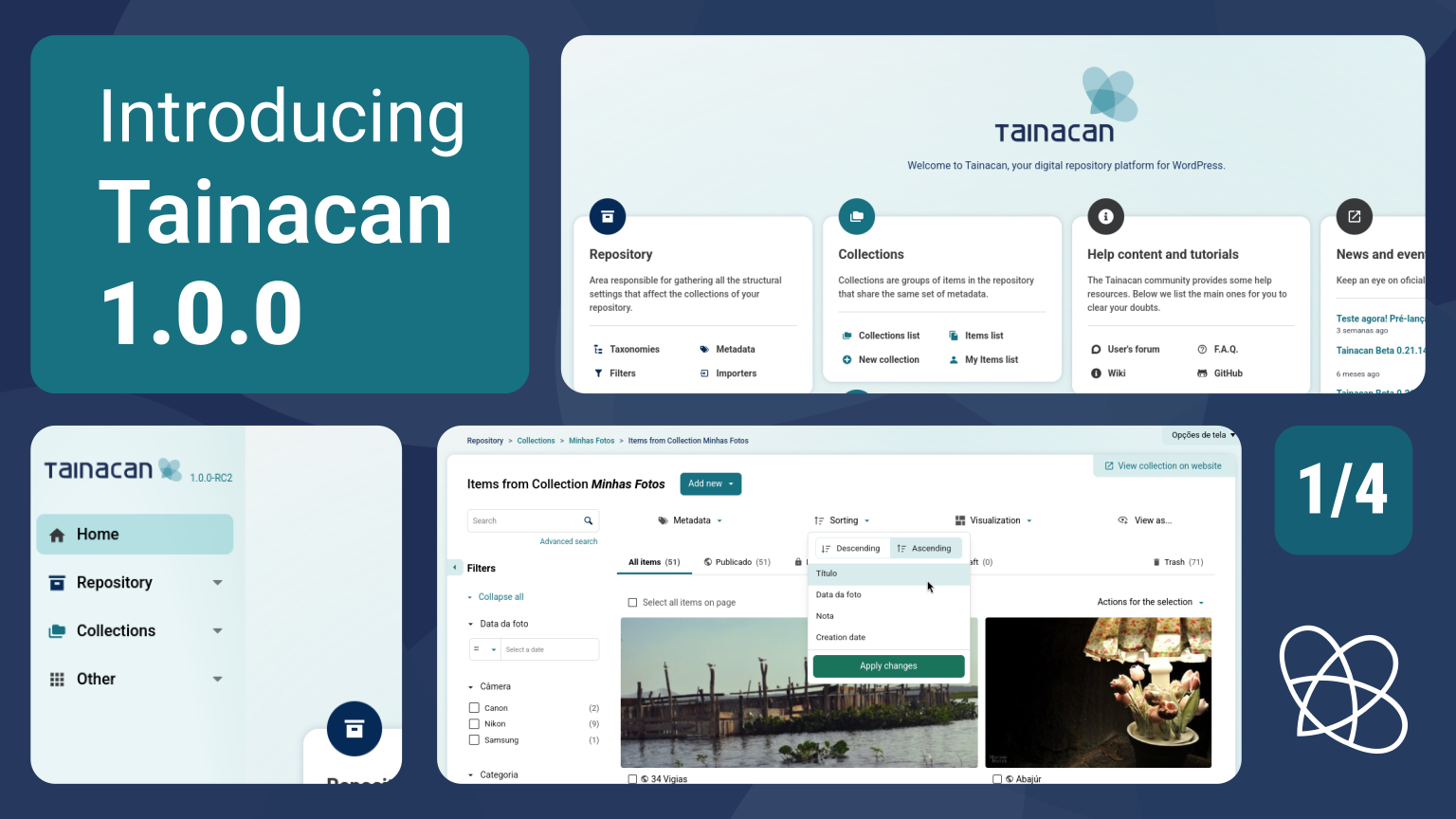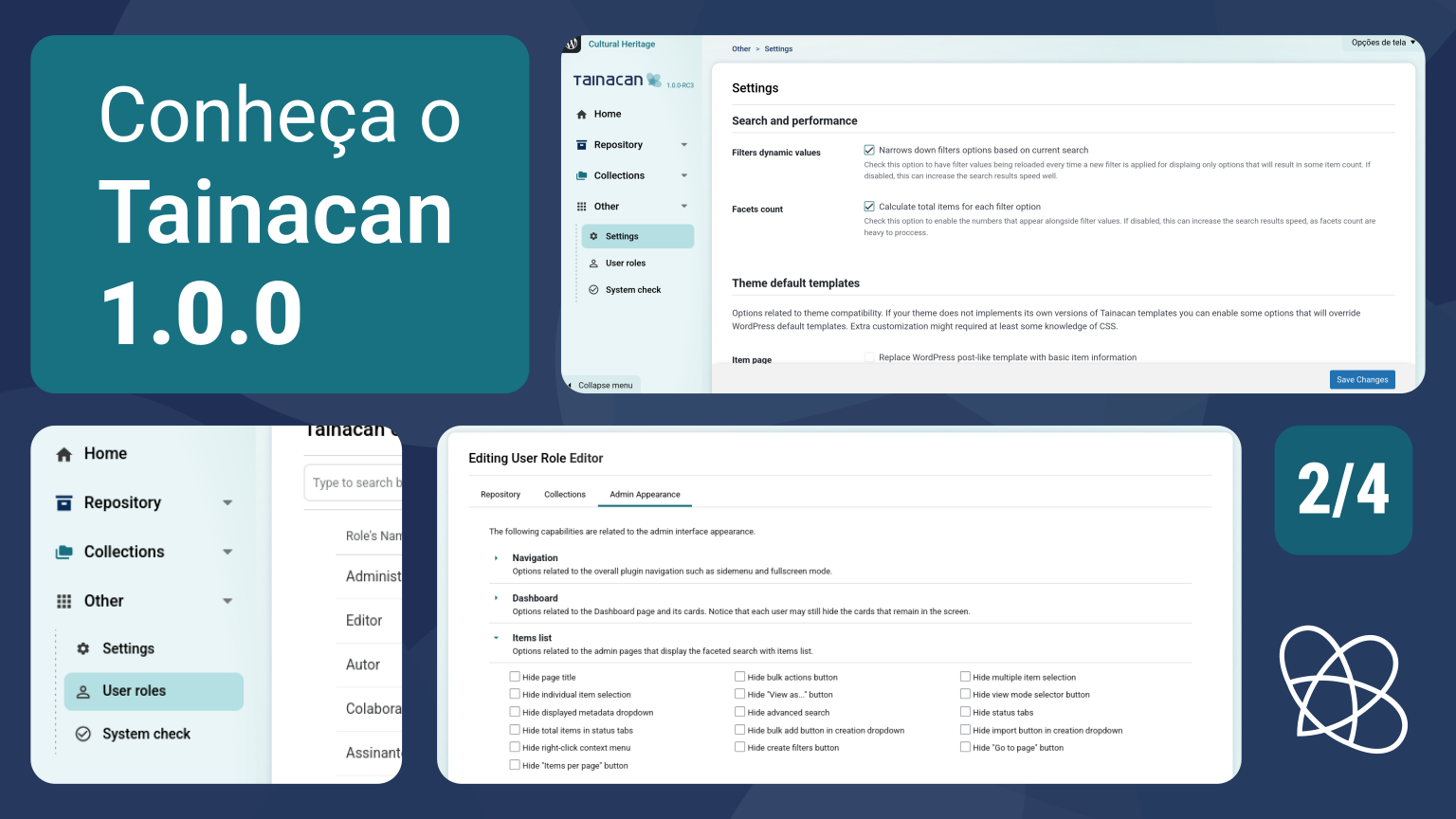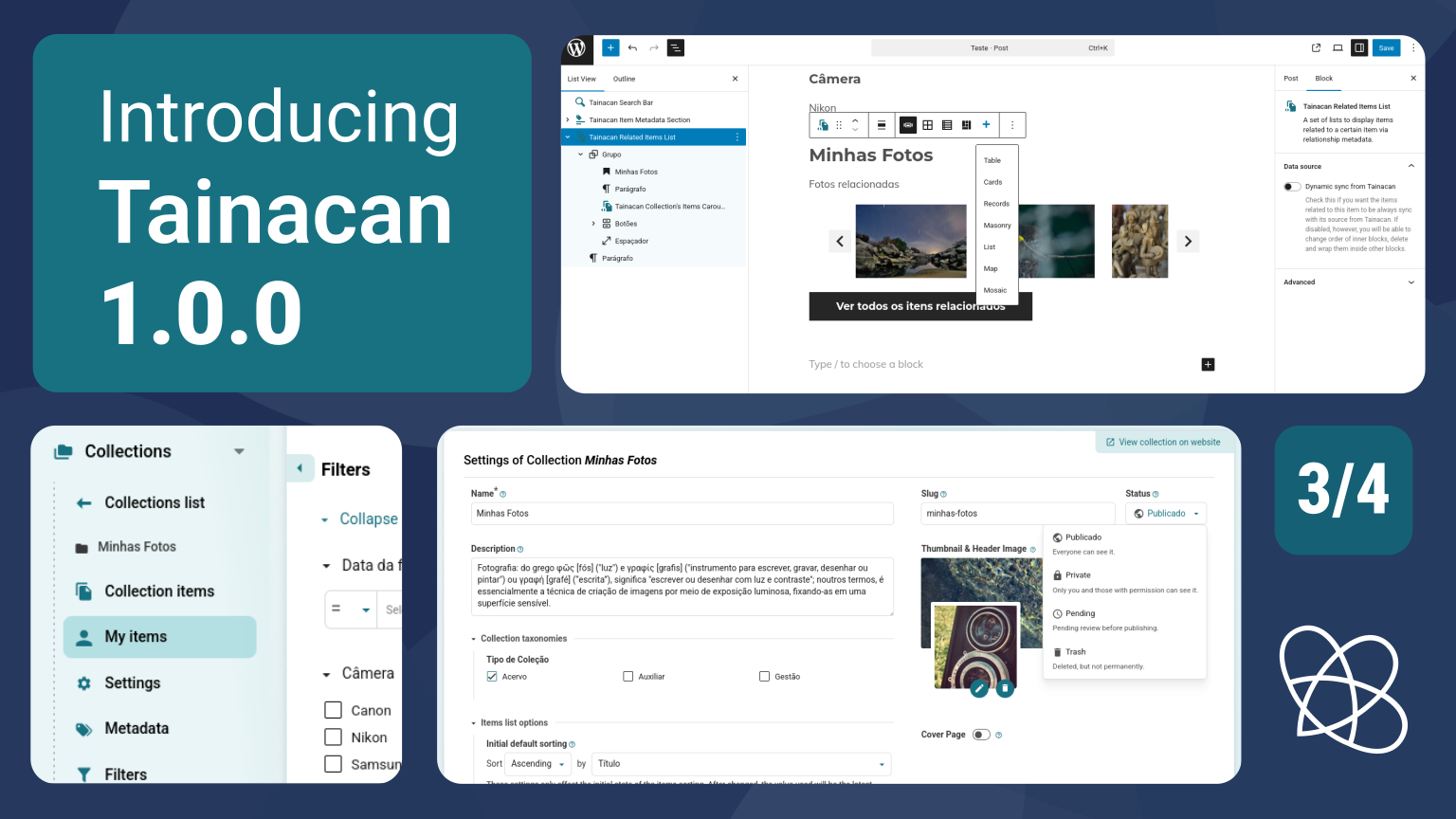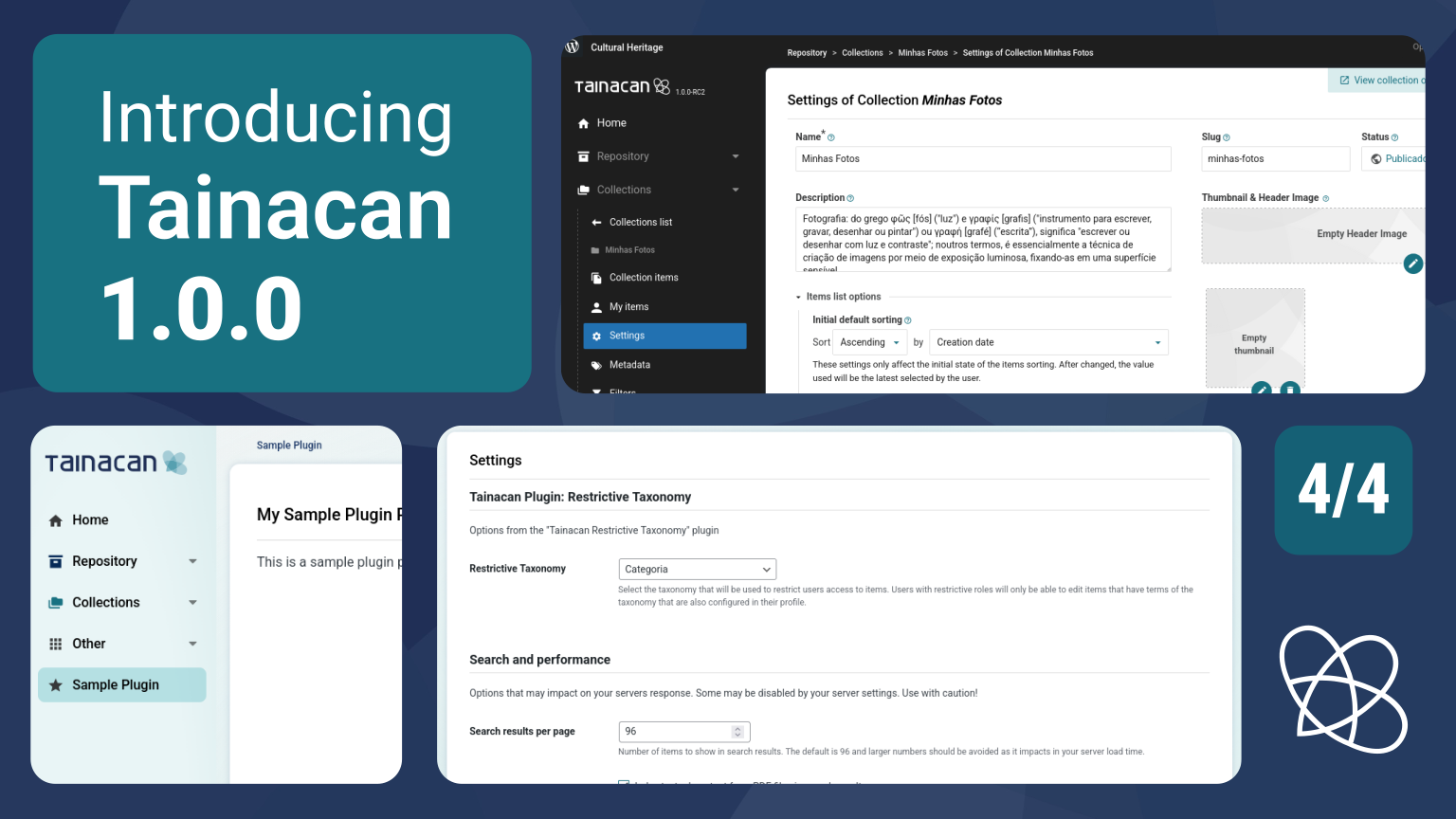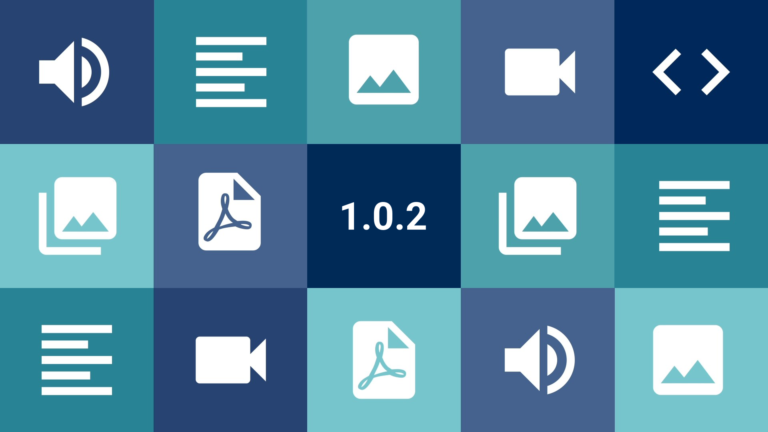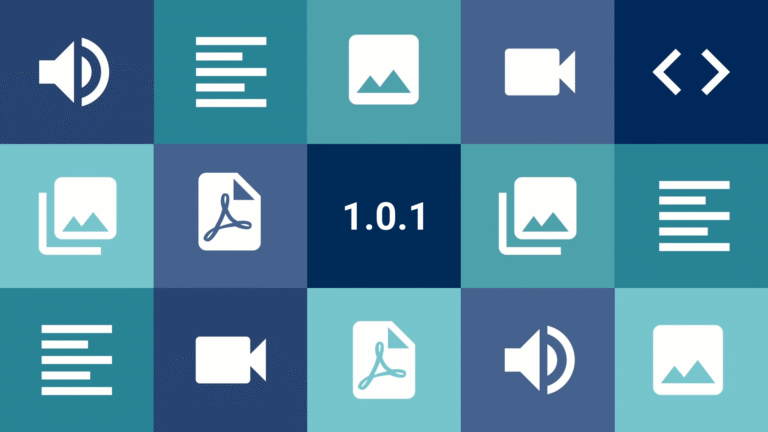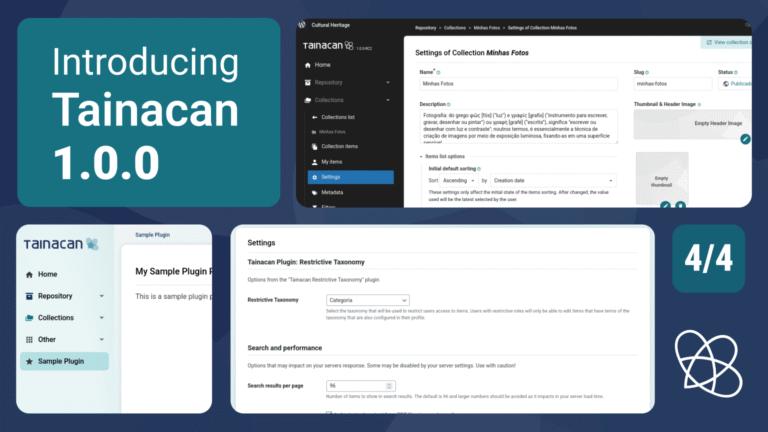In October 2014, meetings began that established a partnership between the Ministry of Culture and Brazilian federal universities to develop a tool capable of supporting the creation of a national policy for digital collections. At the time, there were few solutions that met the main demands of the field—researching, exhibiting, reusing, and preserving cultural information in an efficient and sustainable manner. There were free software tools for digital repositories, such as DSpace, Atom, Omeka, Greenstone, and Islandora, but none of them met the essential requirements of the project: expanding the reach of collections on social networks, offering greater potential for customization and design by incorporating culture into project design, and adopting more accessible, simple, and scalable models of support, hosting, and implementation. Part of this story is recorded in the articles linked here: article 1 and article 2.
It was with this thought in mind, to democratize the management of information on collections and cultural objects, that Tainacan was born.
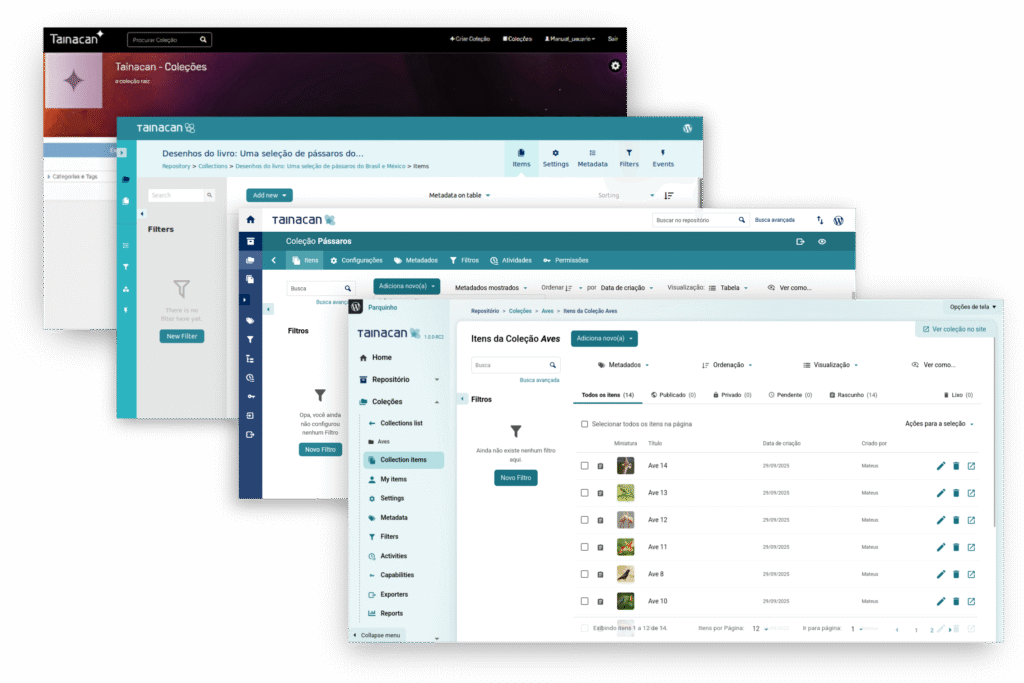
Since then, the project has received support from various institutions, such as the Brazilian Institute of Museums (IBRAM), the National Arts Foundation (FUNARTE), the National Institute of Historic and Artistic Heritage (IPHAN), the Government of the State of Espírito Santo (SECULT-ES), the Brazilian Institute of Information in Science and Technology (IBICT), as well as public universities such as UnB (Brasília), UFG (Goiás), and UFES (Espírito Santo), among many others.
The first prototypes appeared within a few years, and a bold decision was made: to create the tool in the WordPress open-source ecosystem (if you want to understand more about the reasons behind this choice, visit the detailed project presentation). Initially conceived as a Theme, Tainacan soon matured into a Plugin. On May 28, 2018, its first Alpha version was released on the official WordPress repository, available for one-click installation by any institution. In 2021, we launched the community forum, creating a space for exchange between users and developers.
Little by little, influential institutions began to adopt Tainacan and contribute to its development, including more than 30 museums belonging to IBRAM, the Museu do Índio (Museum of the Indigenous Peoples), the Museu Paulista (São Paulo Museum), several institutions belonging to the Ministry of Culture system, public universities, private collections, and various cultural and memory projects, among others. In addition, the project has gone international, is now translated into more than 12 languages, and has established partnerships with international cultural policies, such as the federal government of Mexico through its national strategy for digital collection management, with more than 20 digital repositories already launched in that country and more in the process of being implemented.
Today, with almost 2,000 active installations and over 50,000 downloads, it no longer makes sense to define the project as “Beta.” Tested and validated by thousands of users, we can say that the first roadmap is complete: we have launched Tainacan version 1.0.0.
This does not mean, of course, that the mission is over. Quite the contrary, a new phase is beginning. New features, improvements, and bug fixes are on the horizon. But the initial goal has been achieved: to transform the digital culture landscape for Brazilian institutions by offering a viable free software alternative for managing information on collections and cultural objects — and to expand horizons in different areas of use as well.
So, what’s new in the long-awaited version 1.0.0? Well, there’s so much that we’ve prepared four articles covering the new features:
Get it now!
Version 1.0.0 of Tainacan is already available for download in the WordPress repository of plugins:
Don’t forget to also update related projects such as the themes Tainacan Interface and Tainá and the support plugin for the Blocksy theme.
See you soon!

